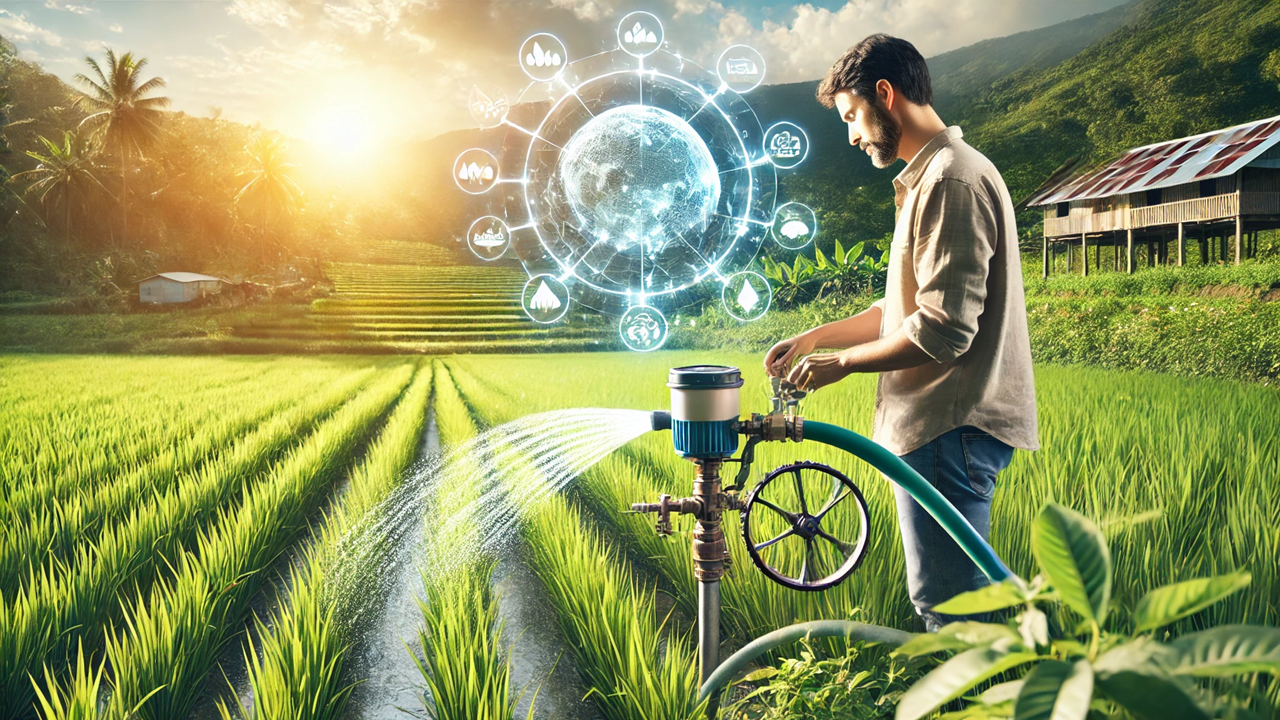Water for Food: Transforming Agriculture for a Climate-Resilient Future
Under the World Bank, the 2030 Water Resources Group (WRG) is driving sustainable water use in agriculture to combat climate change and ensure food security. Their initiatives focus on improving water efficiency, reducing emissions, and empowering smallholder farmers through climate-smart technologies and innovative irrigation solutions.

Agriculture, the backbone of global food production, is also the world’s largest consumer of freshwater, accounting for 70% of all withdrawals. However, climate change is increasingly straining water resources, making it harder for farmers to produce enough food to sustain growing populations. A recent report by the 2030 Water Resources Group (WRG), housed within the World Bank Group, underscores the urgency of modernizing agriculture through sustainable water management to ensure food security and climate resilience. The WRG serves as a collaborative platform bringing together governments, businesses, and civil society to address the widening gap between water supply and agricultural demand. The group aims to revolutionize food production by advocating for water-efficient agricultural practices through micro-irrigation, advanced cultivation methods, and mechanization. These efforts not only conserve water but also reduce greenhouse gas emissions, ensuring a balance between agricultural productivity and climate goals. Additionally, strengthening agricultural value chains enables smallholder farmers to access essential inputs, financing, and technologies—paving the way for increased yields, improved incomes, and more resilient food systems.
One of WRG’s groundbreaking initiatives is the Low Methane Rice project, which builds on the success of India’s Uttar Pradesh PRAGATI Accelerator. This initiative is being expanded across South and East Asia to transform rice cultivation, a major source of global methane emissions. By adopting climate-smart rice farming techniques, WRG aims to reduce methane emissions while enhancing water efficiency and productivity at scale. In Uttar Pradesh, where wheat, rice, and sugarcane farming dominate, WRG is implementing water-saving farming techniques. Agriculture in the region consumes two to three times more water per ton of food produced than the global average, making efficiency improvements crucial. WRG aims to reach 1 million smallholder farmers within five years. The initiative will increase micro-irrigation adoption fivefold and expand direct-seeded rice cultivation tenfold. These changes are projected to reduce greenhouse gas emissions by 60% while ensuring sustainable food production.
In Bangladesh’s Barind Tract, where water scarcity threatens agricultural productivity, WRG is introducing advanced irrigation technologies and farmer hubs. The project has trained 19,500 farmers and benefited 58,500 additional individuals. It has also increased rice production by 400 kilograms per hectare and boosted mango productivity 200-fold, demonstrating how water-efficient methods can significantly enhance food production. WRG has pioneered first-of-their-kind irrigation solutions across multiple regions, offering scalable models for sustainable water use. In India’s Karnataka, WRG established the world’s first large-scale community drip irrigation project, reducing water abstraction by 24 million cubic meters and expanding across 100,000 hectares. In Kenya, a new financing model for smallholder farmers was introduced to access modern irrigation systems, benefiting 500 farmers and contributing to farmer-led irrigation development. In South Africa, the first automated water administration system for major irrigation networks was implemented, cutting water distribution losses by 20% and expanding across 21 irrigation schemes.
The WRG’s initiatives demonstrate that climate resilience in agriculture is achievable through innovation, collaboration, and sustainable water management. By integrating cutting-edge irrigation technologies, climate-smart farming practices, and market-based solutions, WRG is shaping a future where food production thrives without depleting vital water resources. As climate change accelerates, the need for sustainable water use in agriculture has never been greater. Through partnerships with governments, corporations, and civil society, WRG is leading the charge toward a more efficient, resilient, and food-secure future.
- FIRST PUBLISHED IN:
- Devdiscourse










